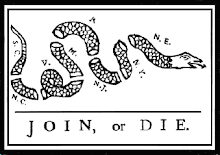Wahi: the Supernatural Basis of Islam
By Dr. Koenraad ELST
1. The yogic view of the Quranic trance
In discussing Islam, most non-Muslims and ex-Muslims tend to focus on the negative achievements of Islam, such as Islamic mistreatment of women and unbelievers. However, we should realize that in its essence, Islam is only secondarily an ethical system with a characteristic record of conduct. In the first place it is a belief system, a truth claim. The Islamic religion stands or falls with the truth or untruth of two assertions: (1) there is no God but Allah, the Creator of the universe; and (2) Mohammed is the final spokesman of Allah, who through him passed on to mankind a series of messages assembled in the Quran. This Quranic communication is understood to have been a constant process of "revelation" from AD 610, when Mohammed was 40, until his death in AD 632.
The first belief is a theological claim which Islam has in common with some other monotheistic religions, and which, if subjected to cunning interpretation, could even be reconciled with some schools of polymorphous-theistic Hinduism ("the wise call the one True One by many names"). The second belief, by contrast, is the truly defining truth claim of Islam, setting it apart from every other religion: the prophethood of Mohammed.
In this essay, originally published as a series of articles in the on-line monthly Kashmir Herald in autumn-winter 2002-2003, we will discuss some non-Islamic views of this core assertion of Islam. The present chapter will focus on the Hindu view of Mohammed's prophethood.
Before the colonial age, there was hardly any Hindu evaluation of Mohammed's prophetic claims, nor even of Islamic doctrine in general. The first detailed criticism of Islam, and in particular of the Quran, was written by Swami Dayananda Saraswati, founder of the Vedic reform...........MORE/FROM










































